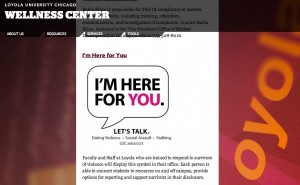
Good sociological research illuminates how individuals in society interact with social institutions and with one another. Sometimes, this research can uncover some of the feel-good aspects of social life. Other times, it can leave you despairing for humanity and raging against social structures.
A new report by Marquette University sociologist Heather Hlavka evokes the latter feelings. Analyzing over 100 interviews with girls aged 3 to 17 who may have been sexually assaulted, Hlavka found that the majority of these young women didn’t see themselves as victims because they considered sexual harassment a “normal” part of everyday life and male behavior.
For years, politicians, pundits, academics, and community advocates have been troubled by the staggering statistic that 60% of sexual assault and harassment goes unreported. Hlavka’s research speaks to some of the reasons behind this figure. Beyond the normalization of sexual harassment and assault, she finds that assaults go unreported out of shame, fear of retribution, and mistrust of authority. This mistrust extends to male authority figures, including police officers, to whom many of these women and girls would report an assault.
Hlavka sees her study as a call to action. Changing the way we think about sexual assault and sexual harassment might be a big step toward stopping it.
You can watch Hlavka discuss her research on the Melissa Harris-Perry Show.

Comments 3
A Renaissance-Man — April 26, 2014
What about boys and male adolescents that are abused by women . . . for instance, the epidemic of teachers abusing male children that we ignoring at present. The presentation of this research suggests that male sexuality is dangerous, a premise any honest researcher and human being should reject.
CrustyTheprawn — April 27, 2014
Perhaps they didn't report themselves as victims because the definition used for 'harassment' encompassed such inconsequential things as 'he looked at me funny' or 'he brushed past me as he got off the bus', as per most "good sociological research" as undertaken by feminists ... if it supports the feminist narrative of women good/men bad then surely it must be good research, right?
A sure sign of female bigotry is when no male comparative figures are provided
#respectbothsexes
AJ — April 27, 2014
The person who seems to think that sexual assault is normal is the researcher. If the girls themselves do not consider that they were victims then it seems likley that the majortiy were not.
IT is disrespectful of the girls interviewed to disregard their vies but still more so of real victims. The logic that because few think they are victims are there are few reports it must be so common as to be normal is outrageously illogical nad improbable. This logic would allow any false conclusion to be drawn.
'Aliens walk among us and the reaon there are no substantiated reports is that it is so common no thinks it abnormal!' It is difficult to see it as anything other than hate fueled sexist propoganda, most damaging to real victims but also to society as a whole especially men.